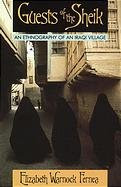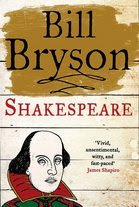Monday, December 1, 2008
100 Notable Books of 2008
Need to buy some Christmas gifts?
Follow the link below to discover outstanding fiction/nonfiction/poetry suggestions from the New York Times.
http://www.nytimes.com/2008/12/07/books/review/100Notable-t.html?_r=1&ref=arts
Monday, November 3, 2008
Neil Gaiman's "Anansi Boys"

Wednesday, September 17, 2008
Team of Rivals: The Political Genius of Abraham Lincoln

Come join the Friends and share your insights.
Friday, August 22, 2008
Heartbreaking book that will lift your soul and spirit...

"Is Google making us Stoopid?" by Nicholas Carr

"Is Google making us Stoopid? What the Internet is doing to our brains." by Nicholas Carr.
Atlantic Monthly. July/August 2008. 302:1 56-63.
- Having trouble concentrating?
- How's your memory?
- Do you want only the main points?
- Is your writing style more telegraphic than ever?
This fascinating article begins with the author's observation that his brain has changed over the past ten years. He compares his experiences with those of his colleagues, who anecdotally note that they have difficulty concentrating for extended periods of time and that the duration of comfortably reading has shrunk considerably. Although people read more today, particularly text messages and web pages, the amount of "deep reading" has declined.
Brains can be affected by technology. Carr notes that Nietzsche's writing changed as his vision failed and as he moved to writing with a typewriter. His writing became even terser. Analogously, clocks changed the way that people interacted with time. Instead of people deciding when to eat, sleep, and work using their bodily senses, clocks became the dominant technological way to organize personal activities.
The appearance of the printing press led to concerns about the undermining of religious authority, intellectual laziness and weakening minds, and the spread of sedition and dabauchery. In some people's minds, those predictions have come true. However, there are many benefits to the populace from the easy availability of the printed word.
I'm in a public service job where interruptions are constant. Add to that the break in focused work by email. An attention span which once could last for several hours has dwindled to several minutes. I worry that my problem solving abilities are deteriorating. My writing skills have declined immensely as has my vocabulary over the past few years. I'm hooked on young adult literature--I could say that it was related to the ages of my children, but is that true? My memory is only minimally better than that of my 80 year old aunt. I don't have to use my memory anymore, because I can look up whatever I need on Google!
What are your experiences?
What do you think of the Carr's analysis of the impact of Google on our brains?
From on-campus you can read the article here: http://search.ebscohost.com/login.aspx?direct=true&db=aph&AN=32562106&site=ehost-live
Thursday, June 26, 2008
Guests of the Sheik: An Ethnography of an Iraqi Village

Thursday, April 24, 2008
Bill on Will ...

I'll make this brief as well ... I LOVE Bill Bryson! I will read anything this author puts out, and he has never failed to surprise and enlighten. I was pleasantly amused to find that Bill's latest book is on the Bard himself. Bryson is himself an ex-pat now living quietly in the England he so loving explored in Notes from a Small Island. Loving the UK as he does, it is no surprise that he turns his attention and pen to the life of William Shakespeare. This is a nice, neat addition to the Eminent Lives Series - and thankfully the Bryson wit, wisdom and tenacity for the facts are all here.
Admittedly, this is a very brief book as we know very little about Shakespeare, which it seems would best be spelled Shakspere if we were in keeping with what we do know of the man. Bryson gives us wonderful detail about Elizabethan London - a place of plague, pestilence and wonderful theatre! Bill does a magnificent job of countering the anti-Stratford arguements that Will in one man did not exist. It is great fun and I offer that this is the perfect book to read if you little time and wish to learn a great deal about a great man who we happen to know nearly nothing about!